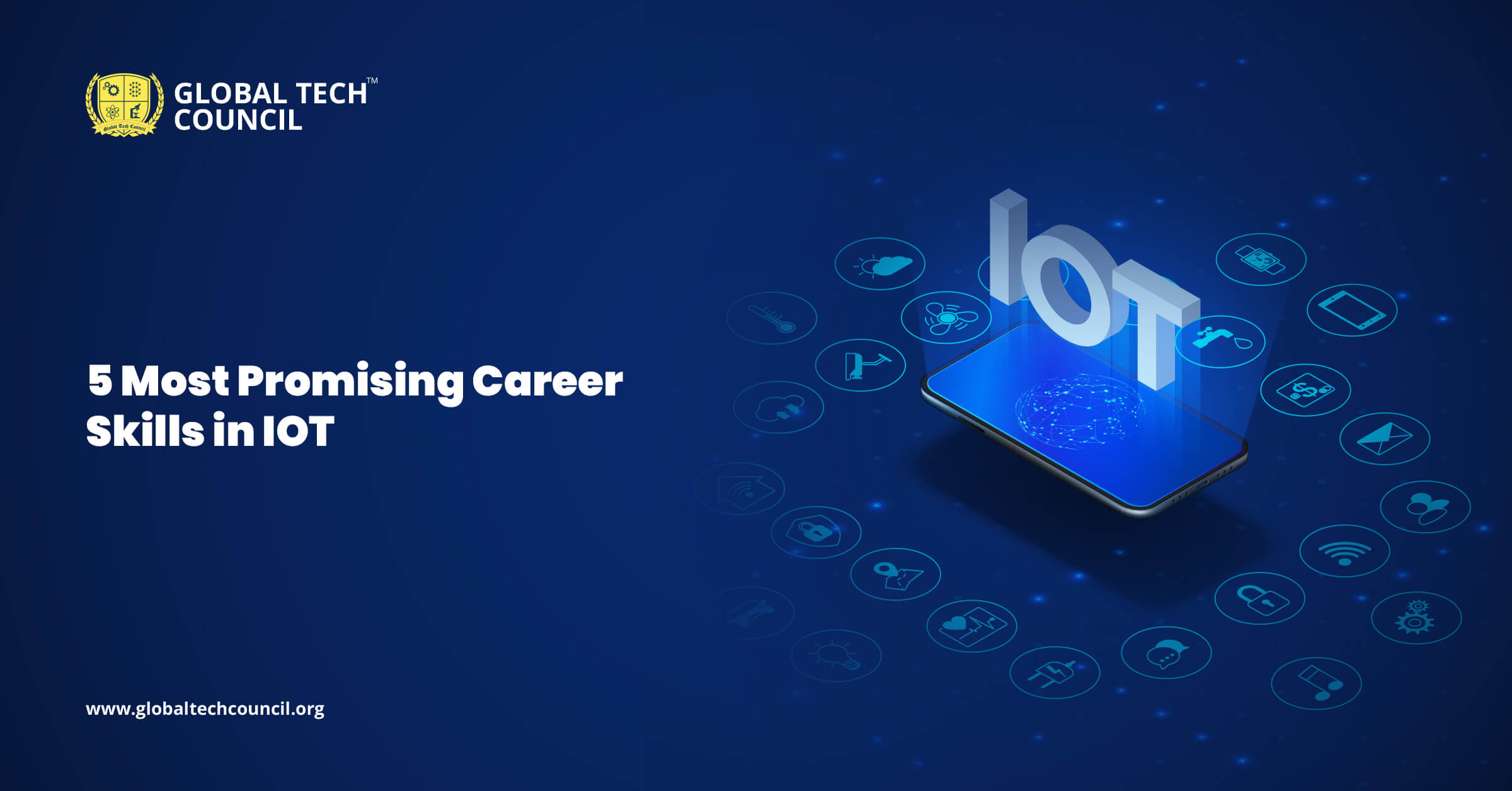
The Internet of Things, often known as the Internet of Everything. It is the upcoming industrial revolution, as per expert opinions. It will allow a new class of gadgets to interact without the need for human involvement.
In 2015, the Internet of Things reached its pinnacle with sensor-mapped neighborhoods and architecture, linked automobiles, and household items. Other innovative products are workout wristbands, smart baby monitors, and plenty more. Since IoT is becoming a new normal for more organizations, 2021 will serve as a wake-up call.
The Internet of Things has advanced quite a lot over the generations. This advancement will be available by the middle of 2025. There will be even more than twice the variety of Internet of things devices as there are people on the planet. The desire for talented IoT experts has never been greater; however, it is very much expected to skyrocket in the coming years. Today in this post, we will top five most desired IoT certification–based expertise that is important in a career path.
1. Machine learning and artificial intelligence
The internet of things plus artificial intelligence merged to produce the artificial intelligence of things. Also known as IoTA. By 2022, Gartner predicts that more than eight percent of business IoT initiatives will use artificial intelligence.
Internet of Things devices captures a significant amount of sensor information. Businesses analyze this information. A production factory, for instance, might employ IoT sensors to monitor site ambient. Which would then register in software that kept track of temperature data across all locations. Artificial Intelligence and machine learning may then assist database managers. By organizing data, determining the best thermostat to sustain, as well as optimizing the facility. Predicting analytics is possible by artificial Intelligence. It may be used to enhance the surroundings in the long term. Artificial Intelligence makes the information collected by IoT devices. And assists in the filtering of duplicate information from massive data warehouses. And also conduct sophisticated data analysis as well as administration.
2. Information Security
In IoT training, information security specialists are in great demand these days. Due to the apparent variety of applications and gadgets that IoT involves, safeguarding IoT equipment is challenging. Security engineers in this sector must be innovative as well as adaptive in their threat evaluations. To consider both hardware and software flaws in IoT devices. Security experts that are knowledgeable with technologies from specific suppliers. A business management system, and Cloudflare, a safe content delivery service, are also in demand.
Password authentication is one of the IoT’s flaws, particularly in industrial IoT, since many gadgets in this sector are not designed for accessibility. For which administrators forget to update manufacturer-set preset passwords. They are self-contained for the most part and do not receive frequent operator access. Attackers will have a much easier time guessing specific passwords. And breaking into IoT equipment becomes easy. Stealing information or conducting network surveillance can occur if the passwords aren’t updated.
3. Working of Sensors
A sensor is a component that detects physical insight from its surroundings. And turns it into information that humans or machines can later process. The majority of sensor components are electronic devices. However, others are simpler, like a thermometer made up of glass that displays visual data. They use sensors to monitor temperature, range, detect smoke, control pressure, and various other applications. Sensors will likely spread into every area of our life as science advances. There are lots of different sensor elements present in an ordinary car.
Tire pressure sensors determine if tires are flat or need to be inflated. Self-driving vehicles include ultrasonic sensor components. These components use sound vibrations to detect the range between the car and various structures. Motion sensors are mainly used in household security systems to track the position of more essential items. The sensors are widely used by developers and specialists everywhere around the globe. Improve commuting, medical treatments, nanotechnology are prominent examples. Also used for smartphones, digital and augmented vision, and artificial intelligence or AI.
4. Big Data Analysts
Big Data Analysts collect data from a variety of sources. Including enterprise data warehouses, then analyze and comprehend to generate information that is useful to organizations. They must visualize and communicate their results by creating detailed reports, charts, and graphs, among other things. All technical as well as non-technical departments benefit from a visual depiction of the information findings. Once everyone has a clear picture of the concept. The IT and management teams may discuss ways to use the information to improve certain things. These include business choices, increase revenue, influence consumer decisions, and improve customer happiness.
5. Cloud Computing
The demanding distribution of IoT resources via the Internet. Automatic billing is known as cloud computing. So rather than purchasing and operating. You may use a cloud provider system for sustaining physical information centers and systems. These days many companies are using this technique. To obtain technical services. Including processing power, space, and analytics as per requirements. Data backup, disaster restoration, email, virtual workspaces, software production, are few examples. Big data analytics, plus customer-facing web apps, are also examples of Cloud computing. Organizations of all types, sizes, and industries are adopting the cloud today.
Conclusion
So this was all about today’s post. In this post, we have mentioned the top five skills required for starting a career as an IoT developer. If you are looking into starting your new job in IOT, these will be some of the best options.